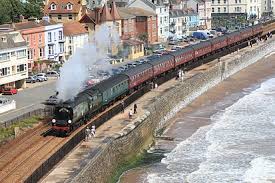Supporters of nationalisation compare Britain’s railways unfavourably with those in other European countries, where the state plays a more active role. Yet, perhaps surprisingly, many countries on the continent see the British model as one to copy. EU rules that came into force in June require state-owned rail firms to open their tracks to rivals and legally separate the management of track and train, as in Britain. And although British rail-users are fed up, those elsewhere are crosser still. Only five EU countries have happier passengers (and most of them are in countries without many railway lines).

Average British fares are by some way the highest in Europe. But European passengers pay less for their tickets mainly because they pay more through taxation. In France and Germany, taxpayers cover almost half the cost of train tickets, whereas the fares Britons pay fully cover the trains’ operating costs. Any argument for increasing subsidies must reckon with the fact that rail-users are, on average, a richer bunch than those who use other forms of transport, such as buses.
譯文由可可原創,僅供學習交流使用,未經許可請勿轉載。











